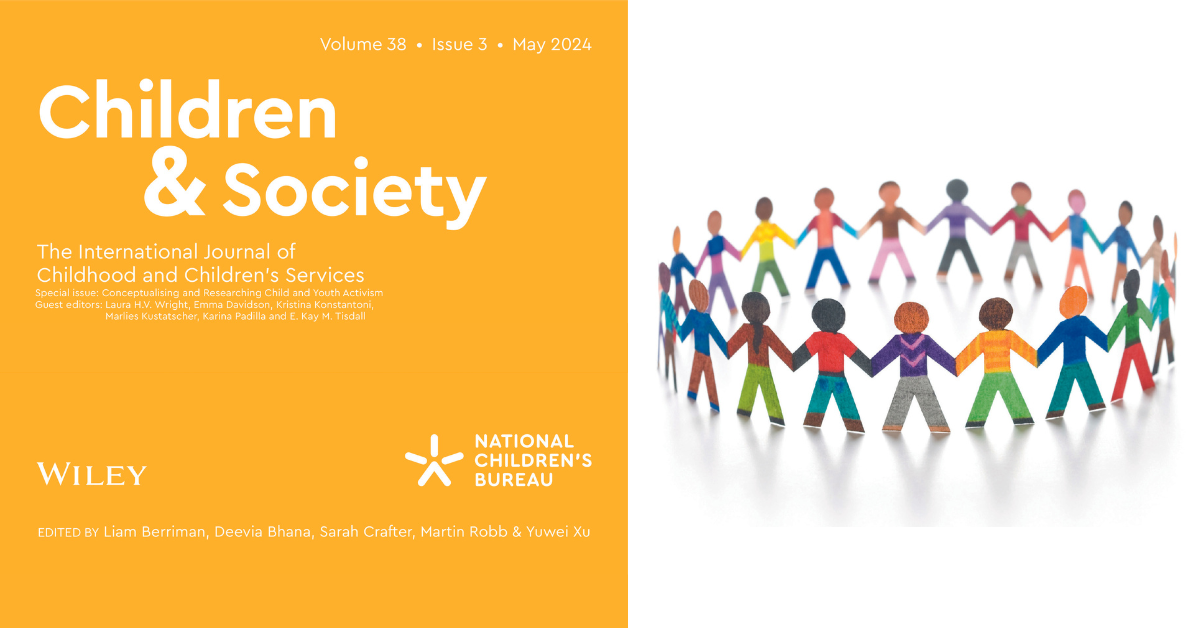Launch of Children and Society Special issue: Conceptualising and Researching Child and Youth Activism

Authors
Emma Davidson
Lecturer in Social Policy and Qualitative Research Methods
Co-director of the Binks Hub and Centre for Research on Families and Relationships, School of Social and Political Science
Laura H.V. Wright
Lecturer, Childhood Studies, Moray House School of Education and Sport
We are thrilled to announce the launch of a new Children & Society special issue, ‘Conceptualising and Researching Child and Youth Activism’. Co-edited by colleagues at the Children and Young People Thematic Hub at the University of Edinburgh’s Moray House School of Education and Sport (Laura Wright, Kristina Konstantoni, Marlies Kustatscher, Karina Padilla and Kay Tisdall) and CRFR co-director, Emma Davidson, the collection seeks ‘to provide a platform for the range of child and youth activism emerging globally and the participatory methods that contribute to these movements’.
The collection does not seek to create a single definition of child and youth activism. Instead, we have curated a diverse range of articles which explore definitions, conceptualisations, and experiences of child and youth activism across settings and contexts. These help us to build a deeper understanding of the ways in which children and young people themselves engage in activism.
The collection was launched at an event on 24th April 2024 and provided authors the opportunity to continue the conversations prompted. Crucially, we continued to reflect on the importance of conceptual clarity over the definition of ‘activism’ and the gains (or losses) such an approach might afford. Notably, this includes the role of the researcher within activist research and the extent to which our social, political and geographical context restrict the forms of activism possible, or render them un-fundable or unsustainable.
Young people involved in the research projects spoke about the systemic, institutional and political barriers they faced. This included existing adultist norms and expectations for their involvement, and concerns about ‘tokenism’. Participatory research projects provided those of all ages the opportunity to learn together in a way that priorities care and trusted relationships.
While the collection shows the huge benefits of activist research, the discussion also highlighted the need for stronger evidence of impact. This, it was noted, often focuses on the impact on the individual young people. While of importance, less robust evidence on the institutional impact of activist research exists. Qualitative longitudinal research was seen as a key tool for improving these understanding.
The discussion amongst authors acknowledged the fluidity required by activist research. In that way, it can feel like a dance, with the movement of ideas, action and progress rippling back and forth. It is clear that from the outset of a project, those involved need to have a collective understanding of why a project is happening, of who is involved and in what capacity, and what difference – together – it is seeking to make. Flexibility, a willingness to have honest conversations and time to build relationships are the foundations for making this happen.
We invite you to read the wonderful contributions to our Special Issue and continue this conversation.




Comments are closed
Comments to this thread have been closed by the post author or by an administrator.